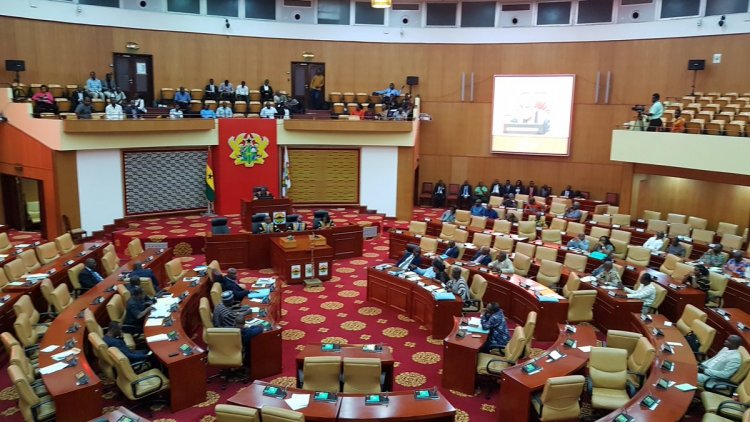Parliament approves Akufo-Addo's 2021 budget
The budget was approved after a heated debate between the majority and minority caucuses in the legislative chamber

Parliament has approved the Budget Statement and Economic Policy for the 2021 fiscal year.
The approval comes after heated arguments from both sides of the House.
The Minority earlier rejected the outcome of the voice vote after calling for the rejection of the budget.
The Speaker therefore granted the application of the Minority for a headcount amid controversy on the Floor.
Names of Members of Parliament (MP) were called, more in the form of a roll call, for them to be marked prior to the voting.
After the voting, 137 MPs were in favour of approving the budget as against 134 MPs voting against the budget.
READ ALSO:
Resign if you have presidential ambitions - Gabby Otchere-Darko warns Ministers
The Minister of Parliamentary Affairs and leader of Government Business in Parliament, Mr Osei Kyei-Mensah-Bonsu had on Friday, March 12, 2021, presented the 2021 budget statement and highlights to Parliament, detailing the government’s programmes and policies for the year.
But the Minority caucus in Parliament raised issues with the budget due to its tax component.
There were concerns about the price of fuel, among others, after the proposed a 5.7 percent increment in prices of petrol and diesel as part of new levies.
There was also a 1 percent COVID-19 levy which will be a one percentage point increase on both the existing VAT Flat Rate Scheme (VFRS) and National Health Insurance Levy (NHIL).
The Finance Minister-nominee, Ken Ofori Atta, said this would be necessary for funding the coronavirus vaccine rollout as well has health infrastructure.
The increment will be as a result of the new 10-pesewa Sanitation and Pollution Levy as well as a 20-pesewa levy to cater for charges on the country’s excess power capacity.
The government, on the other hand, has described the taxes as necessary after a revenue shortfall of GHS13.4 billion which was 3.5 percent of GDP.
Expenditure on the other hand had seen an increase of GHS11.8 billion translating into a deficit increase of GHS25.3 billion.





































